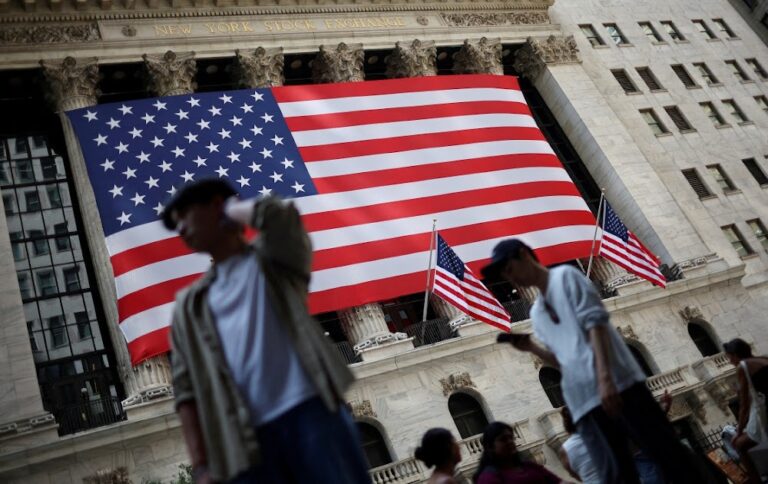New York — A rebound on Wall Street and in the dollar has not allayed investor concerns about the ability of US assets to outperform overseas markets, with a fresh tariff salvo once again denting market optimism after a string of trade deals struck by the Trump administration perked up sentiment for equities to set record highs.
The sliding dollar, down about 8% this year against a basket of major currencies, and the ballooning fiscal deficit are shaking the conviction that US financial markets will deliver world-beating returns.
For more than a decade, the concept of “American exceptionalism” — the conviction that the US’s democratic system plus its huge and liquid capital markets offer unique rewards — has been little challenged by investors.
But ongoing uncertainty surrounding tariffs is rattling confidence. While the deals struck by Donald Trump with the EU, Japan and South Korea have delivered some relief, the US president late on Thursday slapped dozens of trading partners with steep tariffs.
A market shakeout earlier this year caused by Trump’s first tariff announcements triggered a re-evaluation. The US market’s standing appears “a little bit bruised,” said Lori Heinel, global chief investment officer at State Street Investment Management.
“The overhang of the (government) debt makes it less attractive to have dollar-based assets,” she added.
In a survey conducted in late May and June, market research consultancy CoreData found that many institutional investors and consultants, collectively overseeing $4.9-trillion in assets, are scaling back exposure to the US. Among respondents, 47% are cutting their strategic, long-term allocations to US markets.
While investors have become more upbeat on the outlook for Europe, as well as for China and other emerging markets, bullishness towards US markets now lags those regions.
That, said Michael Morley, head of CoreData US, marks “a massive reversal” from attitudes two years ago. The latest wave of tariffs on exports from dozens of trading partners, including Canada, Brazil, India and Taiwan, sent global markets tumbling on Friday.
The announced duties were “somewhat worse than expected,” analysts at Societe Generale said in a note. “Markets responded more negatively to the August 1 announcement than to other news in the past two months, but the reaction was far less severe than on April 2,” they said.
Reconsidering
Investors began reconsidering their allocations after Trump’s “Liberation Day” tariff announcement on April 2, reassessing the allure of “brand USA” and fretting about a new recession.
The Trump administration then paused tariff rollouts and subsequently began announcing deals that cap tariffs at lower levels than initially proposed. Stocks rebounded, with the S&P 500 soaring 27.2% from its April 8 close to its July 31 close, setting a series of new records.
CoreData, however, found that 49% of institutions believe that markets now are too complacent about the impact of US tariffs. US consumer prices increased by the most in five months in June, according to Consumer Price Index data, suggesting that tariffs are boosting inflation.
